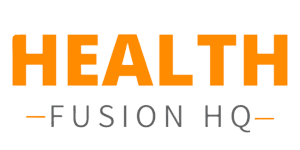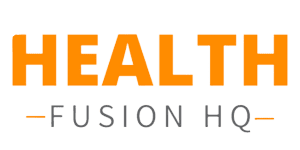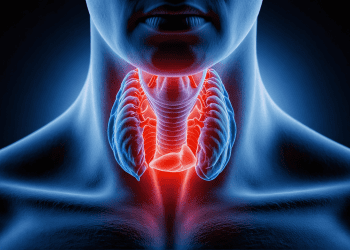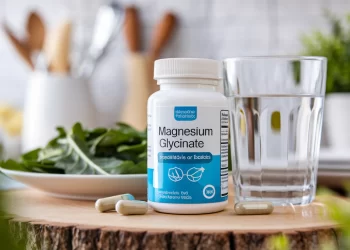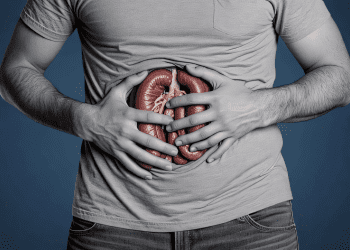Effective Ways on How to Lower Blood Pressure Fast
If you have high blood pressure, finding effective ways to lower it quickly is essential for your well-being. In this section, I will share some strategies that can help you lower your blood pressure fast. Whether you are looking to manage your blood pressure through lifestyle changes or medications, there are options available to support your journey to better health.
Key Takeaways
| Key Takeaways |
| Managing high blood pressure requires proactive choices. |
| Explore lifestyle changes and dietary modifications to support blood pressure management. |
| Consider the use of medications under the guidance of a healthcare provider. |
| Consult with a medical professional for personalized advice and ongoing support. |
| Lowering blood pressure can reduce the risk of complications and promote overall well-being. |
Lifestyle Changes for Lowering Blood Pressure
When it comes to managing high blood pressure, making certain lifestyle changes can be highly effective. These changes not only help lower blood pressure but also contribute to overall well-being and cardiovascular health. Incorporating stress-reducing techniques, engaging in physical activity, staying hydrated, and making smart dietary choices are all key factors in maintaining healthy blood pressure levels.
One of the most important lifestyle changes for lowering blood pressure is stress management. Chronic stress can lead to elevated blood pressure, so finding effective stress-relieving techniques is crucial. Deep breathing exercises and relaxation techniques can help reduce stress and lower blood pressure naturally. By focusing on your breath and intentionally slowing down your heart rate, you can significantly improve your overall well-being.
Physical activity is another integral part of a healthy lifestyle. Regular exercise helps strengthen your heart, improves blood circulation, and assists in maintaining a healthy weight. Engaging in activities such as walking, jogging, or swimming for at least 30 minutes a day can have a positive impact on blood pressure. Remember that even small increments of physical activity throughout the day can make a difference.
Additionally, staying hydrated is essential for maintaining optimal blood pressure levels. Drinking an adequate amount of water can help prevent dehydration, which can lead to elevated blood pressure. Aim to drink at least 8 glasses of water per day and avoid excessive consumption of caffeine and alcohol, as they can contribute to dehydration and increase blood pressure.
Stress-Relieving Techniques for Lowering Blood Pressure
- Practice deep breathing exercises: Take slow, deep breaths, inhaling deeply through your nose and exhaling slowly through your mouth. Repeat this exercise for several minutes, focusing on deep relaxation.
- Incorporate relaxation techniques into your daily routine: Try activities such as yoga, meditation, or tai chi to promote relaxation and reduce stress levels.
- Engage in physical activity: Regular exercise, such as brisk walking or cycling, can help lower blood pressure and reduce stress.
- Consume dark chocolate in moderation: Dark chocolate has been shown to have beneficial effects on blood pressure due to its high antioxidant content.
- Take a cold shower: Cold showers can promote relaxation, reduce stress, and temporarily lower blood pressure.
By implementing these lifestyle changes and incorporating stress management techniques, individuals can significantly lower their blood pressure levels. It’s essential to consult with a healthcare provider to develop a personalized plan that takes into account individual needs and health conditions. Making these changes, along with any necessary medications, can lead to better blood pressure control and improved overall health.
Lifestyle Changes for Lowering Blood Pressure
Implementing certain lifestyle changes can significantly contribute to lowering blood pressure. These changes include adopting a heart-healthy diet, reducing sodium intake, increasing potassium intake, avoiding saturated and trans fats, and limiting sugar and caffeine consumption.
Heart-Healthy Foods
Incorporating heart-healthy foods into your diet can have a positive impact on your blood pressure. Include foods such as spinach, broccoli, carrots, apples, oranges, bananas, whole grains, nuts, beans, and lean meats. These foods are rich in nutrients and can help reduce the risk of developing high blood pressure.
Sodium and Potassium Intake
Reducing sodium intake is crucial for managing blood pressure. Opt for low-salt alternatives and avoid processed foods that are typically high in sodium. Additionally, increasing potassium-rich foods in your diet can counteract the effects of sodium on blood pressure. Include foods such as bananas, melons, avocados, and spinach to boost your potassium intake.
Avoiding Saturated and Trans Fats, Sugar, and Caffeine
Avoiding foods that are high in saturated and trans fats is important for maintaining healthy blood pressure levels. Opt for healthier alternatives such as olive oil, avocados, and nuts. Limiting sugar and caffeine consumption is also recommended, as they can temporarily increase blood pressure.
| Food Category | Recommended Options | Alternative Options |
|---|---|---|
| Sodium Intake | Low-sodium alternatives | Avoid processed foods |
| Potassium Intake | Bananas, melons, avocados, spinach | High-potassium fruits and vegetables |
| Saturated and Trans Fats | Healthy fats like olive oil, avocados, nuts | Avoid fried and processed foods |
| Sugar | Limit added sugars | Choose natural sweeteners |
| Caffeine | Limit caffeine intake | Choose decaffeinated options |
Additional Tips for Lowering Blood Pressure
Managing blood pressure goes beyond just lifestyle changes and diet modifications. There are additional tips that can further help in lowering blood pressure and improving overall cardiovascular health. Here are some key aspects to consider:
1. Stress Management: Chronic stress can contribute to elevated blood pressure levels. Implementing stress management techniques such as deep breathing exercises, meditation, and yoga can help reduce stress and promote relaxation.
2. Adequate Sleep: Quality sleep is essential for maintaining overall health, including blood pressure regulation. Aim for 7-8 hours of uninterrupted sleep each night to support healthy blood pressure levels.
3. Smoking cessation: Smoking is a significant risk factor for high blood pressure and other cardiovascular diseases. Quitting smoking can lead to a significant improvement in blood pressure readings and overall health.
4. Blood Pressure Monitoring: Regularly monitoring your blood pressure at home can provide valuable insights into your cardiovascular health. This allows you to track any changes and take necessary actions promptly, in consultation with your healthcare provider.
“Effective stress management techniques, sufficient sleep, smoking cessation, and regular blood pressure monitoring can contribute to lowering blood pressure and reducing the risk of cardiovascular complications.”
By incorporating these additional tips into your lifestyle, you can enhance the effectiveness of other blood pressure-lowering strategies and further promote your overall well-being.

Summary:
In summary, effective blood pressure management involves not only lifestyle changes and dietary adjustments but also stress management, adequate sleep, smoking cessation, and regular blood pressure monitoring. These additional tips can contribute to lowering blood pressure and reducing the risk of cardiovascular complications. Prioritizing these aspects alongside other recommended strategies can help individuals achieve and maintain healthy blood pressure levels.
Fast Methods for Lowering Blood Pressure
When it comes to lowering blood pressure quickly, there are several effective methods that can provide immediate relief. These techniques can help relax the body, reduce stress, and ultimately lower blood pressure levels. Incorporating these methods into your daily routine can make a significant difference in managing your blood pressure.
Warm Bath or Shower
Taking a warm bath or shower can be a simple yet effective way to lower blood pressure. The warm water helps relax your muscles and promotes a sense of calmness, which can in turn reduce stress levels. It’s important to ensure that the water is warm, but not too hot, to avoid any potential discomfort or overheating. Spend around 15-20 minutes in the bath or shower and allow yourself to fully unwind and relax.
Breathing Exercises
Breathing exercises are another powerful tool for reducing blood pressure quickly. Deep breathing and slow exhaling can activate the body’s relaxation response and help lower blood pressure. One effective technique is the 4-7-8 method: inhale deeply through your nose for a count of 4, hold your breath for a count of 7, and exhale slowly through your mouth for a count of 8. Repeat this cycle a few times, focusing on your breath and letting go of any tension or stress.
Relaxation and Stress Relief
Engaging in activities that bring you joy and help you relax can also contribute to lowering blood pressure. Whether it’s reading a book, listening to soothing music, or practicing mindfulness meditation, finding moments of relaxation and stress relief can have a positive impact on your overall well-being. Taking time for yourself and prioritizing self-care can help lower stress levels and, in turn, lower blood pressure.
Remember, while these fast methods can provide temporary relief and help lower blood pressure immediately, it’s important to incorporate long-term lifestyle changes and follow a comprehensive treatment plan for managing high blood pressure effectively. Consulting with a healthcare provider is crucial for developing a personalized plan and receiving ongoing support and guidance.
Medications for Managing Blood Pressure
In the treatment of high blood pressure, medications play a crucial role in effectively managing and controlling blood pressure levels. These medications are often prescribed alongside lifestyle changes and a healthy diet to reduce the risk of complications and maintain optimal blood pressure. It is essential to understand the different types of blood pressure medications and follow a personalized treatment plan recommended by a healthcare provider.
Types of Blood Pressure Medications
There are several classes of medications commonly used to manage high blood pressure. These include:
- Angiotensin-converting enzyme (ACE) inhibitors: These medications relax blood vessels, reducing the workload on the heart and lowering blood pressure.
- Angiotensin II receptor blockers (ARBs): ARBs block the effects of a hormone that narrows blood vessels, helping to lower blood pressure.
- Calcium channel blockers: These medications relax and widen blood vessels, allowing for improved blood flow and lower blood pressure.
- Diuretics: Diuretics help the body eliminate excess sodium and water, reducing fluid volume and lowering blood pressure.
- Beta-blockers: Beta-blockers reduce the heart’s workload by slowing down the heart rate and decreasing the force of contraction, resulting in lower blood pressure.
| Medication Class | Common Medications | How They Work |
|---|---|---|
| ACE inhibitors | Lisinopril, Enalapril | Relax blood vessels, lowering blood pressure |
| ARBs | Losartan, Valsartan | Block the effects of hormones that narrow blood vessels, reducing blood pressure |
| Calcium channel blockers | Amlodipine, Diltiazem | Relax and widen blood vessels, improving blood flow |
| Diuretics | Hydrochlorothiazide, Chlorthalidone | Eliminate excess sodium and water, reducing fluid volume and blood pressure |
| Beta-blockers | Metoprolol, Atenolol | Reduce heart rate and force of contraction, lowering blood pressure |
It’s important to note that everyone’s response to medication can vary, and it may take time to find the most effective medication and dosage for each individual. Regular follow-ups with a healthcare provider are essential to monitor blood pressure and make any necessary adjustments to the treatment plan.
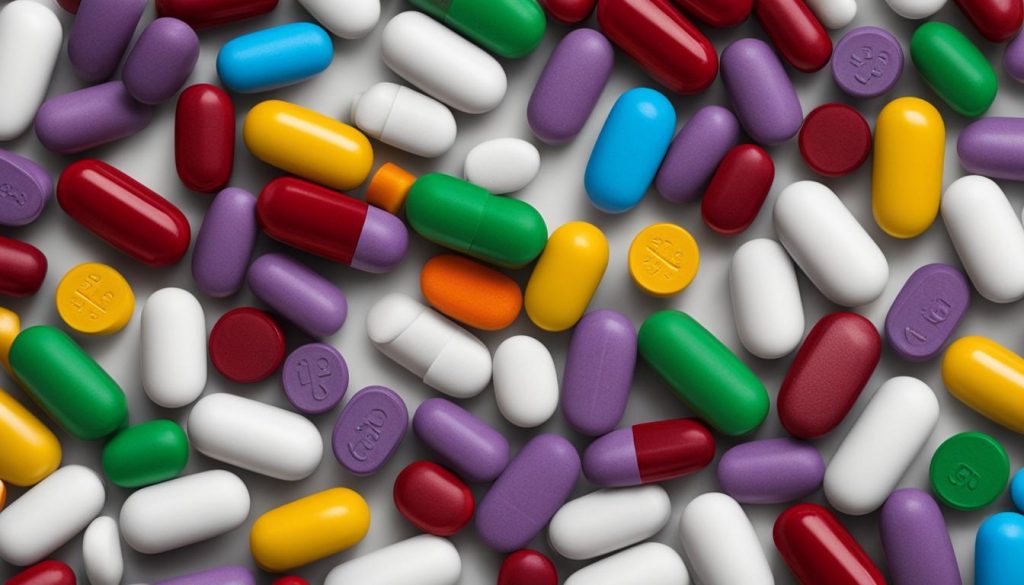
Remember to take medications as prescribed, even if blood pressure levels have improved. Suddenly stopping medication without medical supervision can cause a sudden rise in blood pressure. If experiencing any side effects or concerns, it is important to discuss them with a healthcare provider to determine the best course of action.
Understanding Blood Pressure Levels
Blood pressure levels are an important indicator of cardiovascular health. They are measured using two numbers: systolic and diastolic. The systolic pressure represents the force with which the heart contracts and pumps blood, while the diastolic pressure represents the pressure in the arteries when the heart is at rest between beats. It is crucial to understand the different blood pressure levels and their implications.
Normal blood pressure is generally considered to be below 120/80 mmHg. However, elevated blood pressure, also known as pre-hypertension, falls between 120-129/less than 80 mmHg. Stage 1 hypertension is between 130-139/80-89 mmHg, while stage 2 hypertension is 140/90 mmHg or higher. It is important to note that these values may vary slightly depending on individual factors and health conditions.
In extreme cases, a hypertensive crisis can occur when blood pressure readings are higher than 180/120 mmHg. A hypertensive crisis requires immediate medical attention and may lead to severe complications if left untreated. Monitoring blood pressure regularly and seeking timely medical advice can help manage and prevent such critical situations.
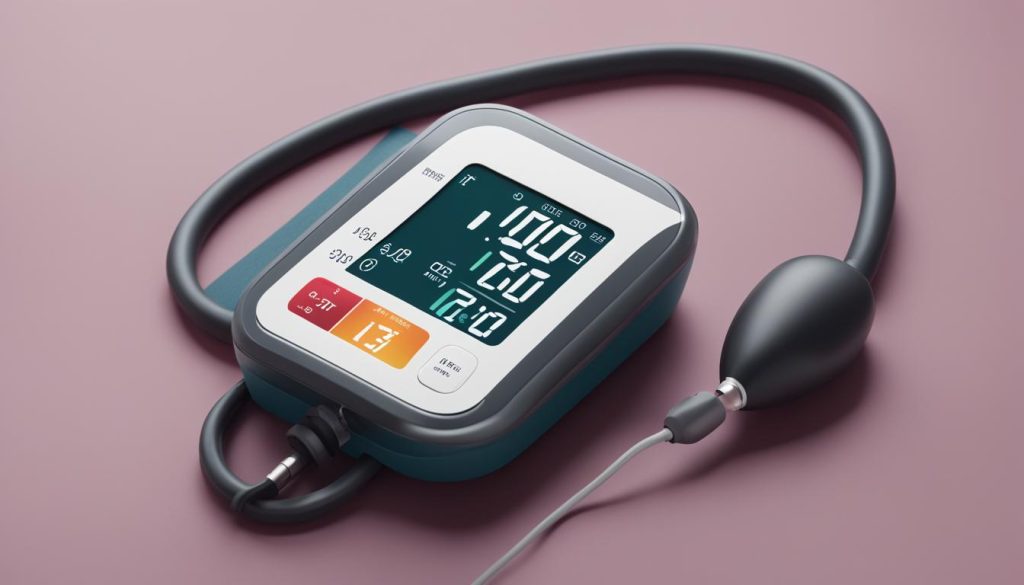
Signs and Symptoms of High Blood Pressure
High blood pressure often goes unnoticed because it lacks obvious symptoms. However, there are signs that may indicate elevated blood pressure levels. These include:
- Headaches: Frequent or severe headaches can be a sign of high blood pressure.
- Nosebleeds: While nosebleeds can have various causes, they can sometimes occur due to high blood pressure.
- Dizziness: Feeling lightheaded or dizzy may indicate elevated blood pressure.
- Skin Flushing: Skin redness or flushing may occur as a result of high blood pressure.
- Bloody Urine: Blood in the urine can be a warning sign of high blood pressure or other underlying conditions.
It’s important to note that these symptoms can be caused by other factors as well, and they do not always indicate high blood pressure. However, if you experience any of these symptoms, it’s essential to monitor your blood pressure and consult with a healthcare professional for an accurate diagnosis.
In some cases, high blood pressure can reach dangerous levels, leading to a hypertensive crisis. If you or someone around you experiences sudden changes in vision, chest pain, shortness of breath, trouble speaking, sudden back pain, or numbness/weakness, it is crucial to call 911 immediately for emergency medical assistance.
Understanding the Importance of Prompt Medical Attention
When it comes to high blood pressure, early detection and management are key to reducing the risk of complications. By recognizing the signs and symptoms of high blood pressure and seeking prompt medical attention, individuals can take proactive steps towards better health and well-being. Regular blood pressure monitoring, adopting a healthy lifestyle, and following the guidance of healthcare professionals are essential for managing blood pressure effectively.
Final Thoughts
In conclusion, effectively managing high blood pressure requires a multi-faceted approach that encompasses various lifestyle changes, a healthy diet, stress management, and, in some cases, medication. By incorporating these strategies into your daily routine, you can take control of your blood pressure and reduce the risk of complications.
Lowering blood pressure starts with making lifestyle changes. Engaging in regular physical activity, practicing stress-relieving techniques such as deep breathing exercises and relaxation, and ensuring adequate sleep are all crucial steps in maintaining healthy blood pressure levels. Additionally, adopting a heart-healthy diet rich in fruits, vegetables, whole grains, and lean proteins while limiting sodium, saturated fats, and added sugars can have a positive impact on your blood pressure.
Stress management is also essential in the journey to lower blood pressure. Finding effective stress-relieving techniques that work for you, such as engaging in hobbies, spending time with loved ones, or seeking professional help when needed, can make a significant difference in your overall well-being and blood pressure levels.
In some cases, medication may be necessary to manage high blood pressure. It’s important to work closely with your healthcare provider to develop a personalized treatment plan that may include the use of medications alongside lifestyle modifications. Regular monitoring of blood pressure at home can also help track progress and ensure that any necessary adjustments are made.
FAQ
What should I do if I have high blood pressure?
If you have high blood pressure, the first thing to do is calm down and lie flat. Take deep breaths to help bring down blood pressure. Additionally, make sure to take your antihypertensive medications if needed.
What lifestyle changes can help lower blood pressure?
Lifestyle changes can play a crucial role in lowering blood pressure. Some effective strategies include practicing stress-reducing techniques such as deep breathing exercises, staying hydrated, engaging in physical activity like walking or stretching, and incorporating relaxation techniques into your daily routine. Consuming dark chocolate in moderation can also help lower blood pressure. It’s important to quit smoking and limit alcohol intake as these habits can contribute to high blood pressure. Managing anxiety and stress through various techniques can make a significant difference in blood pressure levels.
What dietary changes can help lower blood pressure?
Adopting a heart-healthy diet can have a positive impact on blood pressure. Including foods like spinach, broccoli, carrots, apples, oranges, bananas, whole grains, nuts, beans, and lean meats can be beneficial. It’s important to reduce sodium intake and opt for low-salt alternatives. Increasing potassium-rich foods such as bananas, melons, avocados, and spinach can counteract the effects of sodium on blood pressure. Avoiding foods high in saturated and trans fats, as well as added sugars, can also help lower blood pressure. Limiting caffeine intake is recommended as it can temporarily increase blood pressure.
How can I manage stress effectively to lower blood pressure?
In addition to lifestyle and dietary changes, it’s essential to manage stress effectively. Getting enough sleep is crucial for overall health and can help maintain blood pressure within a healthy range. Quitting smoking is highly recommended as it can significantly lower blood pressure and reduce the risk of other health complications. Regular monitoring of blood pressure at home can help detect any changes and take necessary actions promptly.
What are some quick techniques to lower blood pressure immediately?
There are several quick techniques that can provide temporary relief and help lower blood pressure immediately. Taking a warm bath or shower can help relax the body and reduce muscle tension. Breathing exercises, like deep breathing and slow exhaling, can promote relaxation and lower blood pressure. Engaging in activities that bring you joy and help you relax, such as reading a book or listening to music, can also contribute to lowering blood pressure.
Are medications necessary to manage high blood pressure?
Medications are often prescribed to manage high blood pressure effectively. They can be combined with lifestyle changes and a healthy diet to reduce the risk of complications. It’s important to follow the prescribed treatment plan and take medications as directed by a healthcare provider. Gradually tapering off medications can be considered if blood pressure improves with lifestyle modifications.
What are the different blood pressure levels?
Blood pressure levels can vary and are measured using two numbers: systolic and diastolic. Normal blood pressure is generally considered to be below 120/80 mmHg. Elevated blood pressure (pre-hypertension) falls between 120-129/less than 80 mmHg, and stage 1 hypertension is between 130-139/80-89 mmHg. Stage 2 hypertension is 140/90 mmHg or higher. A hypertensive crisis occurs when blood pressure readings are higher than 180/120 mmHg and requires immediate medical attention.
What are the signs and symptoms of high blood pressure?
High blood pressure often has no noticeable symptoms, which is why it’s often referred to as the “silent killer.” However, some signs that may indicate high blood pressure include headaches, nosebleeds, dizziness, skin flushing, and bloody urine. If blood pressure reaches dangerously high levels (180/120 mmHg or greater) or if symptoms like sudden changes in vision, chest pain, shortness of breath, trouble speaking, sudden back pain, or numbness/weakness occur, it’s crucial to call 911 immediately.
